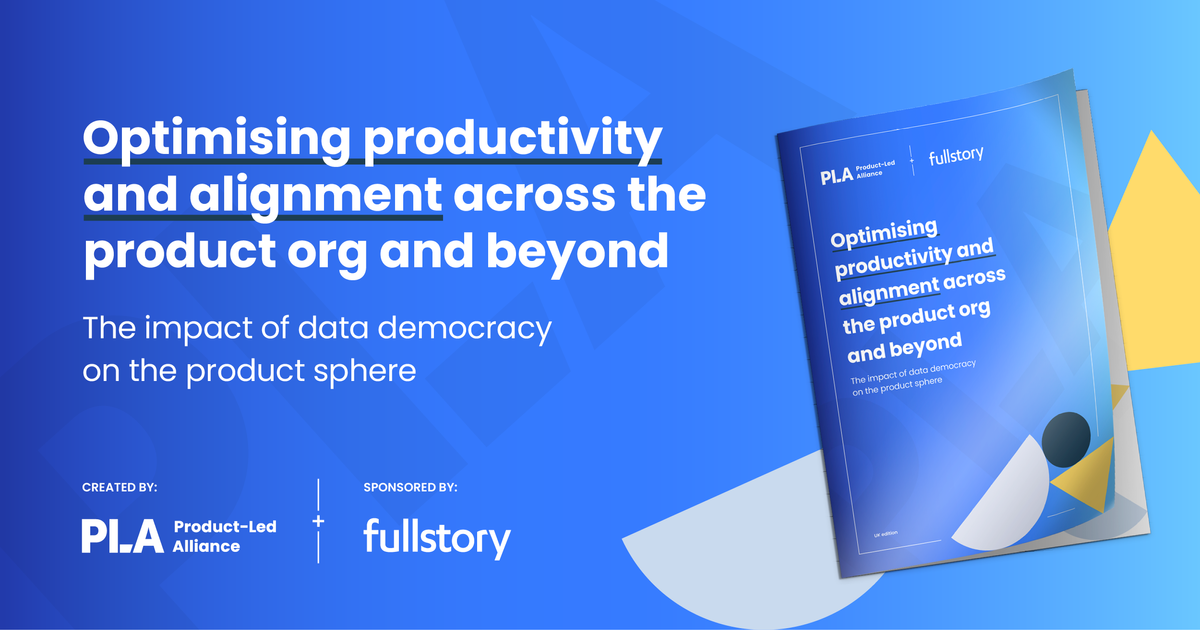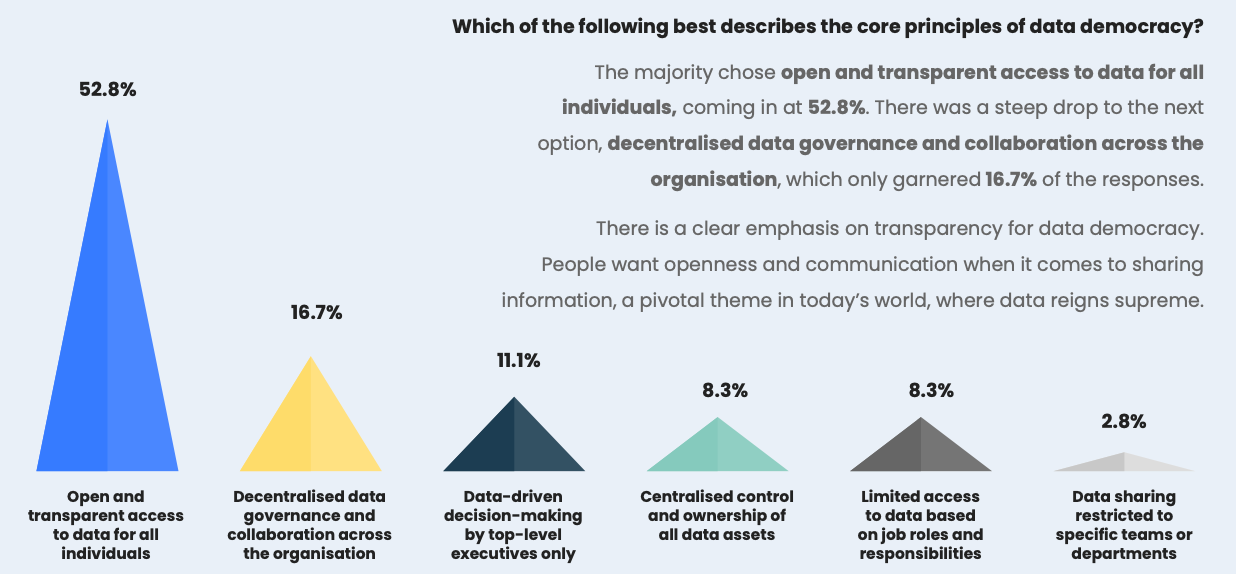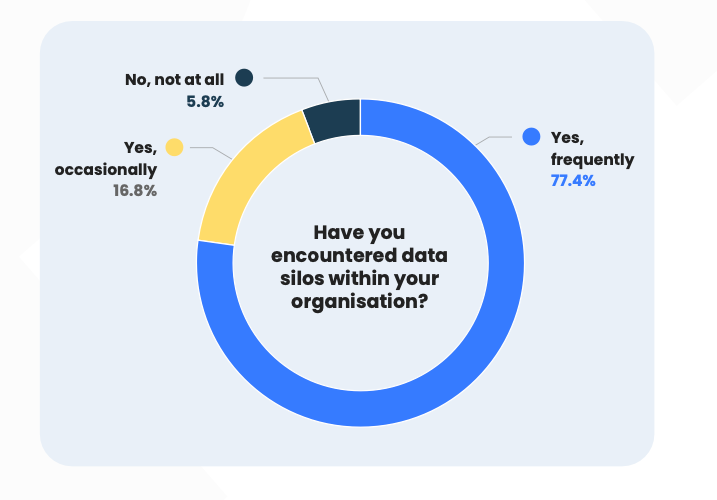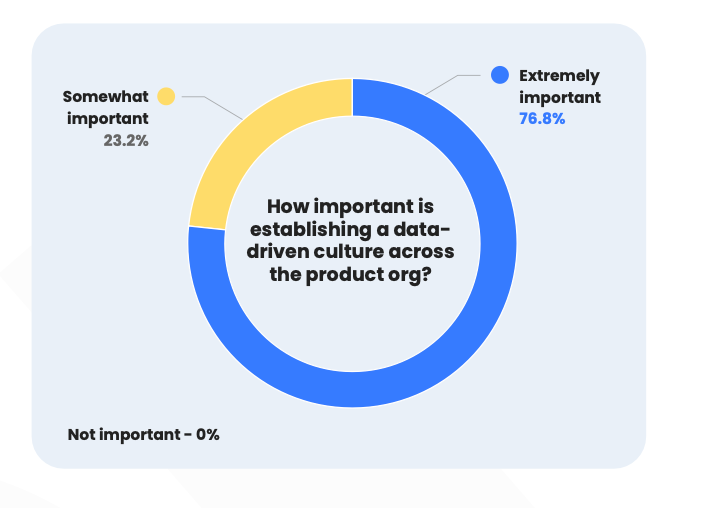The implementation of data democracy stands out as a pivotal journey for organizations seeking to maximize the potential of their data assets. This article explores the challenges and strategies involved in the quest for data democracy, shedding light on key aspects that organizations need to navigate successfully.
But if you want more, download the full report, made with FullStory, for all your data democracy needs.

Defining data democracy
Data democracy is an ongoing process that aims to make digital information easily accessible to every member of an organization, eliminating gatekeepers and ensuring that data is not confined to a select few. In essence, it involves breaking down barriers to data access, allowing individuals across various roles and expertise levels within an organization to interact with and derive insights from data.
This democratization of data is characterized by an inclusive approach, where all employees and stakeholders have the opportunity to access, analyze, and utilize data for informed decision-making. The principles of data democracy emphasize transparency, collaboration, and the empowerment of individuals to harness the value of data in driving organizational success.

Data integration and user adoption through software
Successful software centralization hinges on addressing the complexity of integrating data from diverse systems. Organizations face a crucial decision: either develop a robust integration strategy considering data formats, API compatibility, security, and privacy or seek external expertise for seamless integration.
Transitioning to a centralized software platform can disrupt existing workflows, posing a challenge to employee adoption. To mitigate resistance, clear communication of the benefits, training programs, and stakeholder involvement is essential. Demonstrating the ease of use, improved productivity, and the value of centralized data fosters acceptance and enthusiasm among employees.
Data governance and security
Crucial to centralizing software systems is the establishment of robust data governance practices. Protection of sensitive information, adherence to regulations, and maintenance of data security become paramount. This involves implementing data access controls, encryption measures, and vigilant monitoring of data integrity. Building a solid data governance framework and instilling a culture valuing data privacy and security are critical elements for successful software centralization.
Overcoming the challenges associated with software centralization necessitates careful planning, effective change management, and a strong focus on data governance and security. Embracing software centralization within the broader spectrum of data democratization empowers organizations to unlock the full potential of their data assets, facilitating more manageable and informed data-driven decisions.
Data silos and incomplete data
Data silos and incomplete data pose significant impediments to the gears of data democracy within organizations, creating a fragmented view that impedes a comprehensive understanding. Incomplete or siloed data can distort analyses and lead to inadvertent duplication of work, resulting in costly inefficiencies.

Is data democratization crucial for traditional organizations?
For enterprises and traditionally structured organizations with limited sightlines, data democracy becomes especially crucial. These organizations, characterized by complex structures, hyper-specialized departments, and globally dispersed teams, often face challenges in sharing and accessing data across the company. Data democracy emerges as a transformative solution, breaking down silos and fostering transparency and collaboration.
Every individual, irrespective of their position, gains access to relevant information, empowering them to make informed decisions. Eliminating silos and promoting data access enhances the efficiency, innovation, and overall success of large-scale organizations in the contemporary data-driven business world.
Data democracy in action: How to establish a data-driven culture
By leveraging data effectively, product teams can not only drive decision-making within their own domain but also influence and collaborate with other teams across the organization. So, how do they do that?
Leveraging data as a strategic asset for collaboration
Actionable data is no longer just a byproduct of business operations; it has become a strategic asset that you can use to unlock valuable insights and drive informed decision-making. Product teams are uniquely positioned to collect and analyze data throughout the product lifecycle, including user feedback, market trends, and performance metrics. By recognizing the value of data and treating it as a core asset, you can lay the foundation for a data-driven culture.
To establish a data-driven culture and put the user experience at the forefront of the business, product teams need to proactively collaborate with other teams across the organisation. And relevant, actionable data can help you do just that. By sharing data insights, metrics, and findings, product teams can influence stakeholders and contribute to strategic discussions.
Influencing product roadmaps and continuous optimization
In the world of product developmentprioritize, data is like a superpower. It gives product teams the ability to make smart decisions about which features to prioritise, how to create the best user experience, and what direction to take the product roadmap.
By digging into data-driven insights, product teams can push for improvements that are truly user-centric, spot gaps in the market, and align their strategies with their customers’ needs. And the best part is that they can back up their recommendations with solid data and insights to wield a significant impact on shaping the product roadmap.
But the benefits don’t stop there. A data-driven culture also encourages product teams to keep growing and improving. They can dive deep into user behavior, closely monitor key product performance metrics, and even run experiments to gather valuable feedback as they move along the roadmap.

Conclusion
In conclusion, the journey towards data democracy involves overcoming multifaceted challenges, from integrating diverse data sources to ensuring robust data governance and tackling the menace of data silos.
For traditional organizations, embracing data democracy is not merely an option but a strategic imperative to remain competitive in the dynamic and data-centric landscape of the modern business world. The successful implementation of data democracy empowers organizations to harness the full potential of their data, driving innovation, efficiency, and success.
For more on data democracy, catch the full report now! 👇




 Follow us on LinkedIn
Follow us on LinkedIn




